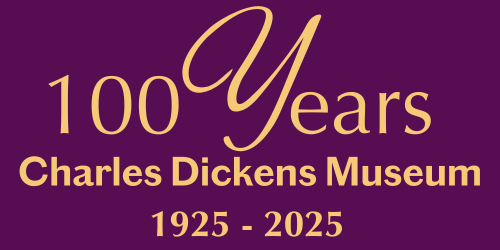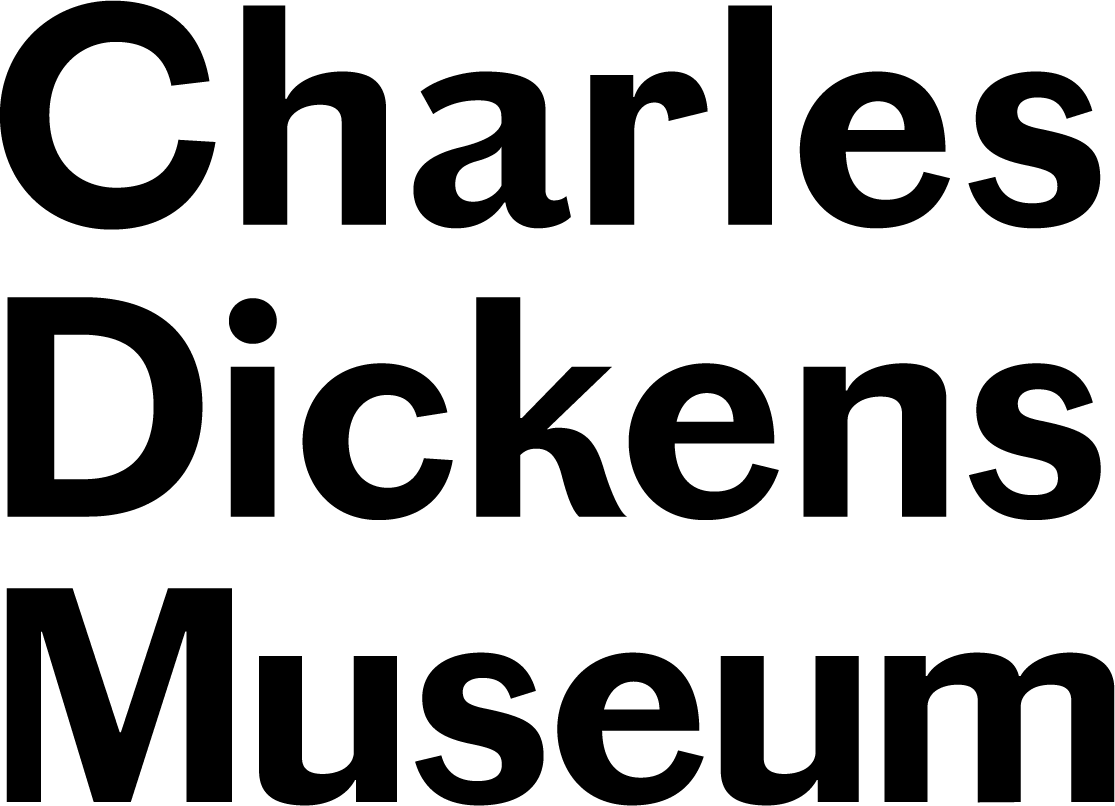Did Charles Dickens believe in Ghosts? The Evidence

Article by Anya Eastman
Despite ghost stories being one of the most enduring genres in Charles Dickens’s corpus, Dickens himself can best be categorised as a ‘fascinated sceptic’: enjoying ghost stories and the performative nature of ghost story telling but hesitant to personally subscribe to a belief in the supernatural.[1] A significant amount of research has been done on Dickens and ghosts but, most of the time, a desire to claim that Dickens was invested in the supernatural involves diverging from specifically discussing Dickens and ghosts, and results in a more general exploration of Dickens and mesmerism, Dickens and magic, or Dickens and death. Yet, despite having a genuine curiosity in the supernatural, and a love of ghost stories – we can confidently claim that Charles Dickens did not believe in ghosts.
On Monday the thirty-first of October 1859, Dickens wrote to William Howitt, a friend and renowned spiritualist, asking if he knew ‘of any haunted house whatsoever within the limits of the United Kingdom where nobody can live, eat, drink, sit, stand, lie or sleep, without spirit-molestation’.[2] If Howitt was able to name a location, Dickens was ready to ‘produce a gentleman who will readily try its effect on his own person.’ It seems that Dickens and his friend, John Hollingshead, were on the hunt for a haunted house, very much willing – even hoping – that Howitt will be able to facilitate a ghostly encounter. At this point in his life, aged forty-seven, Dickens definitely doubts the legitimacy of alleged ghostly encounters, but he seems to be manifesting a supernatural experience of his own, demonstrating a need to see to believe. This letter also gives a sense that Dickens is testing Howitt, inviting a respected proponent of the supernatural to substantiate his claims. In an earlier letter, Dickens reassures Howitt that his ‘mind is perfectly unprejudiced and impressible on the subject’, stating that he has a ‘strong interest in the subject [of ghosts]’ but that he has not yet heard a supernatural testimony which he cannot explain. Again, we see Dickens willing and inviting Howitt to disprove his scepticism.[3]
Unfortunately, Howitt does not manage to provide Dickens with the evidence he seeks. It seems that Dickens is disappointed by Howitt’s suggestions as, when forwarding Howitt’s response to Hollingshead, Dickens writes ‘Here is his - not very terse or cogent – answer’.[4] We do not know exactly what Howitt’s answer was, but Hollingshead writes of this exchange in his autobiography in 1895, stating that:
it is surprising how his [Howitt’s] supply of "haunted houses" decreased immediately [after the stipulation that the rent of the house should be free]. Before that, they were supposed to exist in every street; now, they were as difficult to find as the site of the Holy Sepulchre.[5]
A key issue here seems to be regarding the exchange of money as a means of securing a supernatural experience. For Hollingshead - and we assume for Dickens – the idea that spirits could only be conjured once earthly payment had been made, did not sit well.
Despite Dickens’s ‘hankering after ghosts’, his lack of personal supernatural experience - and his tendency to favour evidence-based thought (seen through his interests in contemporary inventions, medicine and technology) – renders it difficult for him to secure a personal belief in the supernatural.[6] Dickens takes a greater interest in playing with the concept of ghosts in his writing, allowing him to explore his fascination with the supernatural while maintaining a sceptical – at times even mocking – view of ‘real life’ claims.
This shift from intrigue to doubt can be traced further through Dickens’s and Howitt’s interactions, but as the disparity between viewpoints increases, the correspondence over the ‘truth’ of ghosts transfers from private to public forum. In Howitt’s The History of the Supernatural, originally published in 1863, he writes that Dickens ‘has played with spiritualism as a cat with a mouse; it has a wonderful fascination for him…’; he ‘has of late years, in his periodicals, been alternately attacking spiritualism, and giving you most accredited instances of it’.[7] Howitt depicts Dickens as hypocritical, employing the supernatural to help him make sales but discrediting it in the same breath, teasing and taunting his readers with ghostly encounters while simultaneously rejecting contemporary proponents of spiritualism. In the same year, Dickens writes in All The Year Round:
the true believers in the gospel according to Howitt, have, besides, but to pin their faith on “ladies who see spirits habitually”, on ladies who KNOW they have a tendency to soar in the air on sufficient provocation, […] and they shall be pronounced by Mr. Howitt not of the stereotyped class of minds, and not partakers of “the astonishing ignorance of the press”, and shall receive a first-class certificate of merit.[8]
Here Dickens parodies followers of Howitt, suggesting that those that subscribe to the same beliefs advocated by Howitt are putting their faith in sardonically unreliable sources. Dickens is suggesting that rather than questioning ‘ladies who see spirits’, Howitt would be inclined to praise individuals for having their own mind and not being repressed by ignorant non-believers. One of the key problems for Dickens seems to be Howitt’s lack of desire for evidence or authentication in his spiritualist claims, and his willingness to denounce anyone that questions the credibility of his sources. There was a senselessness in Howitt’s advocacy of the supernatural, making it impossible for Dickens to believe the claims of his prior friend.
Dickens’s association with ghosts is one of the most enduring aspects of his legacy, so much so that in 2015 the popular video game Assassins Creed employed Dickens as a character, whose role it was to roam Victorian London visiting the sites of potential hauntings. However, Dickens’s genuine interest in the supernatural, and his love of writing and performing ghost stories has often been conflated with him having a personal belief in ghosts. In John Forster’s biography The Life of Charles Dickens, Forster wrote that he was sure that Dickens would have ‘fallen into the follies of spiritualism,’ if it were not for ‘the strong retraining power of his common sense.’[9] Dickens was a man that needed evidence or personal experience to believe in supernatural possibilities, and — despite actively searching — we have no accounts of him attaining either in his lifetime.
Anya Eastman is a second-year Technê PhD student at Royal Holloway, University of London. Anya’s work explores the memorialisation of Charles Dickens, George Eliot and Oscar Wilde, with an emphasis on heritage and material culture. In addition to her doctoral research Anya is the Assistant-director of Royal Holloway’s Centre for Victorian Studies and she has been on placement at the Charles Dickens Museum, working as a research assistant on the upcoming exhibition ‘To be Read at Dusk: Dickens, Ghosts and the Supernatural’. In this post, Anya explores Dickens’s personal views on ghosts and spiritualism in the Nineteenth-Century.
[1] For the purpose of this blog post I am considering ‘supernatural’ as referring to ghosts, contact with the dead, and ‘other worldly’ beings, opposed to a religious belief.
[2] Charles Dickens, cited from the original manuscript at the Charles Dickens Museum (London).
[3] The Letters of Charles Dickens 1859-1861, Pilgrim Edition, ed. by Graham Storey, Margaret Brown, Kathleen Tillotson, 12 vols (Oxford: Oxford University Press, 1997), IX, p. 116.
[4] Charles Dickens, cited from the original manuscript at the Charles Dickens Museum (London).
[5] John Hollingshead, My Lifetime, 2 vols (London: Sampson Low, Marston & Company, 1895), I, p.110.
[6] John Forster, The Life of Charles Dickens 1847-1870, 2 vols (London: Chapman and Hall, 1876), II, p. 496.
[7] William Howitt, The History of the Supernatural in All Ages and Nations, 2 vols (London: Longman, Roberts, & Green, 1863), II, p.413.
[8] Charles Dickens, ‘Rather a Strong Dose’, All the year round, 24 vols, 21st of March 1863, IX.
[9] John Forster, The Life of Charles Dickens 1847-1870 , p. 496.
Museum Blog
This blog takes you behind the scenes at the Charles Dickens Museum, giving fresh insight on everything from discoveries new and old in our collection, to exhibitions, events and learning initiatives.
You’ll be hearing from a variety of Museum staff and volunteers, as well as guest curators, academics, artists and Dickens enthusiasts. Why not join the debate and let us know you thoughts on the latest blog by using our hashtag #CDMBlog

